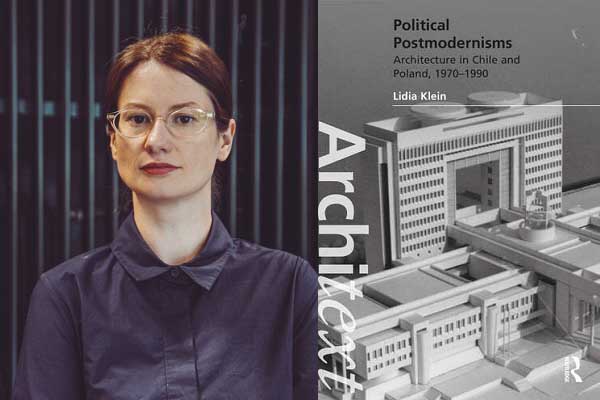Architecture professor’s new book explores postmodernism

Lidia Klein, assistant professor of architectural history, had had her book, “Political Postmodernisms: Architecture in Chile and Poland, 1970–1990,” published by Routledge. The work argues for a redefinition of postmodern architecture.
While postmodern architecture is traditionally considered an apolitical reflection of capitalist affluence, Klein presents a different perspective, investigating postmodern architecture’s political manifestations in the unlikely settings of Chile during the neoliberal dictatorship of Augusto Pinochet and Poland during the late socialist Polish People’s Republic.
“Political Postmodernisms” has three goals. First, it challenges the familiar narrative regarding postmodern architecture as following the “cultural logic of late capitalism” (Fredric Jameson) or as a socially conservative project (Jürgen Habermas). Second, it fills in portions of Chilean and Polish architectural history that have been neglected by Chilean and Polish architectural historians themselves. Third, the book shows how architecture can work as a political form — serving propagandistic purposes and functioning as part of oppositional projects.